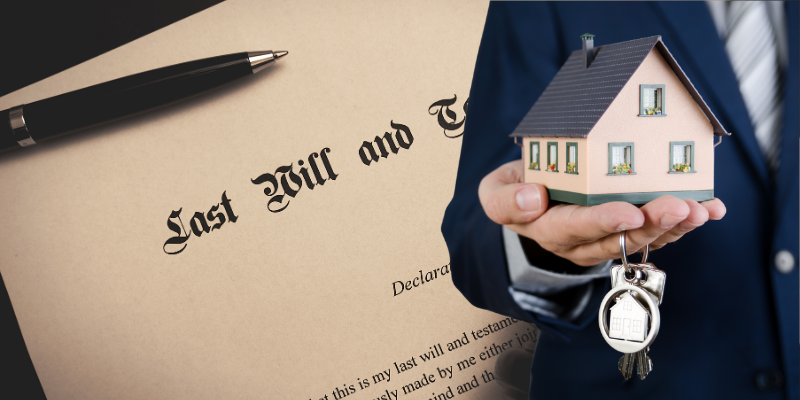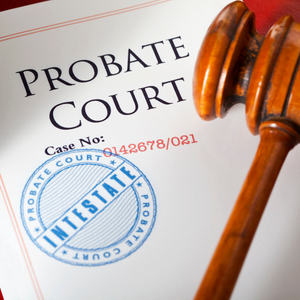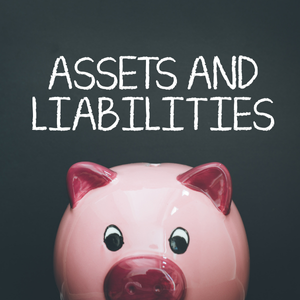
Understanding the Role of an Executor in New York State
An executor in New York State holds a crucial role when it comes to managing and distributing the assets of a deceased person’s estate, including real estate in Long Island. The executor’s primary responsibility is to ensure the terms of the will are carried out as specified by the testator.
This includes gathering assets, paying debts and taxes, and distributing property to beneficiaries. In executing these duties, an executor must adhere strictly to New York State probate laws.
One common misconception is that an executor can alter a will; however, they are legally bound to execute the provisions as written unless all beneficiaries agree to modifications or a court order permits changes due to ambiguities or legal issues within the will itself. When dealing with real estate, particularly in Long Island, where property values can be significant, it’s important for executors to manage these assets prudently and in accordance with both the decedent’s wishes and state law.
Executors may need to navigate complex situations such as selling property or managing disputes among heirs while ensuring compliance with legal obligations.
Key Responsibilities of Executors in Estate Administration
In Long Island, NY, the role of an executor in estate administration encompasses several key responsibilities, particularly when it involves real estate. Executors are tasked with ensuring that the deceased’s will is executed according to its terms, which includes managing and distributing assets like real estate.
They must first locate the will and file it with the probate court to obtain legal authority to act on behalf of the estate. Once appointed, executors are responsible for identifying and valuing all assets within the estate, including any property in Long Island.
They handle debts and taxes owed by the deceased, ensuring these obligations are settled before distributing any remaining assets to beneficiaries. While executors have some discretion in managing assets during probate, they cannot alter the terms of a will unless given express permission through a legal process such as a court order or consent from all beneficiaries.
This ensures that executors uphold their fiduciary duty to act in the best interest of both the estate and its beneficiaries while adhering strictly to New York state laws regarding estates and wills.
Navigating Probate Court as an Executor in Long Island, NY
Navigating probate court as an executor in Long Island, NY, involves a thorough understanding of both state and local laws pertaining to estate administration. As an executor, your primary responsibility is to ensure that the deceased’s will is executed according to their wishes, which includes managing and distributing real estate assets.

In Long Island, specific regulations govern how real estate within an estate is handled during probate proceedings. Executors must file the necessary paperwork with the Nassau or Suffolk County Surrogate’s Court, depending on where the decedent resided.
It’s crucial for executors to be aware that they cannot unilaterally alter the terms of a will; any changes must go through legal channels and typically require court approval. Additionally, executors may face challenges such as contested wills or disputes among beneficiaries regarding real estate distribution.
Engaging with a qualified probate attorney familiar with Long Island’s legal landscape can provide invaluable guidance through this complex process. Understanding tax implications and ensuring compliance with New York State laws are also essential duties for executors handling real estate matters in this region.
How Executors Can Handle Disputes Among Beneficiaries
When managing disputes among beneficiaries over real estate in Long Island, NY, an executor must navigate the complexities of both legal obligations and interpersonal dynamics. An executor cannot alter the terms of a will; their primary duty is to execute the deceased’s wishes as explicitly stated.
However, if conflicts arise regarding the distribution of real estate assets, the executor can facilitate communication and mediation between beneficiaries to resolve disagreements amicably. In some cases, it may be necessary for the executor to seek court intervention or consult with an estate attorney to ensure that all actions comply with New York state laws governing estate administration.
Executors should document all communications and decisions meticulously to protect against future litigation and maintain transparency throughout the process. By fostering open dialogue and adhering strictly to legal guidelines, executors can effectively manage disputes while upholding their fiduciary duties.
Executor’s Guide to Managing Estate Assets and Liabilities
As executor of an estate in Long Island, NY, a will’s legal framework, along with rules governing real estate, must be followed when managing estate assets and liabilities. An executor binds himself in a fiduciary relation once a will has been signed. An executor’s powers in regard to real estate and other assets of an estate will be treated as non-alteration powers.

This responsibility includes listing and appraising every real estate within the estate, and these real estate assets must be managed in accordance with the intentions of the deceased. Some executors may be confronted with liabilities such as the payment of debt and mortgages associated with these real estate assets. These requirements will have to be satisfied within the remand of the legislation of the state of New York.
If the beneficiaries offer their consent, an executor can sell real estate to settle debts or achieve a fair distribution of the entire estate. However, actions that are not in accordance with the original instructions in the will are bound to have court approval or consent from the beneficiaries.
Executors must also be reminded about the implications of real estate taxes and capital gains taxes while having in their possession such properties in Long Island.
Understanding Probate Law for Executors in New York State
In New York State, having an executor of a will play the role of an executor is instrumental in extending probate law and dealing with the real estate tied to the will. Executors are assigned the duty of making sure that what is stated in the will, including its relinquishment of state law, is properly followed.
All of Long Island and New York state have probate laws that state that an executor has the right to pursue the will and have it validated through the Surrogate Court. Probate Courts Lexington surrendered the estate where the will has pursuant instructions pertaining to the collection and appraisal of the assets, amalgamation of all debts plus expenses, payment of the account due, including taxes, and finally, estate distribution.
Decision-making in New York for a will executor is always about suggesting to the court to try to probate a will. It is not the sole power of the executor to make and change the will. In them, there are always court proceedings where legal steps that need to be undertaken go hand in hand with filing an order to the court about the change and alteration of the will. This happens in folds where all of the will holders are in it, where consent is given, or where undue dominance, force, or suggestions have been found.
In New York the executor works along with the lawyer of the will for each of the post developments to make sure that lands of estates are not violated in New York, said to be Long Island. New York’s Law & Real Estate Market Regain the New York real estate market. Executors having knowledge of these aspects will help the will executor know the policy.
What Control Does an Executor Have Over a Will?
An executor has a considerable amount of control over the administration of a will. Even so, an executor cannot change the actual provisions of the will. It is especially crucial in regard to real estate in Long Island, NY. Executors need to make sure that the wishes of the deceased are preserved in the will.

They also need to take care of the remaining debts and, in certain cases, the deceased’s estate. With regard to Long Island real estate, an executor will need to figure out the value of the real property and, if the will or debt demands so, execute the proper management, sale, or ownership transfer in accordance with the wishes of the deceased.
An executor has the right to discretion, but in this case, an executor has very little and no right to change the beneficiaries. The only way an executor can do that is through legal processes that involve court orders. The conclusion is that an executor has considerable control over the administration of a will. The will in question can only be changed at the will of the beneficiaries or through legal adjudication.
What Happens If an Executor Changes a Will?
As per the laws governing real estate in Long Island, New York, an executor’s function is vital to the accomplishment of the provisions of a will. An executor, however, cannot modify the provisions of a will pertaining to real estate, or any other estate for that matter.
If an executor attempts to revise a will, it will be considered fraudulent and have no legal effect. A will is a legal document that specifies an individual’s last wishes, and the executor must ensure that the provisions of the will are followed unless a court order provides otherwise.
If, in the opinion of the beneficiaries, an executor is abusing the executor’s powers by changing or misapplying the will in regard to real estate properties in Long Island, probate court is available as a remedy. It will be the court’s responsibility to ensure that the estate is distributed in compliance with the decedent’s wishes.
There is no doubt that the executor has a fiduciary responsibility to act in good faith. As such, an executor should manage the estate openly without making changes to the will.
Wondering if the executor can change the will while managing inherited real estate? If selling the property is part of the process, we can help make it simple, whether you need to sell your home for cash in Long Island or work with trusted investor home buyers in New York. Prestige Home Buyers is here to handle every detail. As a reliable cash-for-houses company, we provide fair offers, cover the hard work, and ensure a seamless experience. Ready to explore your options? Contact us at (631) 336-9166 for a no-obligation cash offer today!
Helpful Long Island Blog Articles

| LAST WILL AND TESTAMENT | TESTAMENTARY | TESTAMENTARY TRUSTS | CHILDREN | CHILD | LEGAL SERVICES |
| ESTATE PLANNING | SUFFOLK COUNTY, NEW YORK | ISLIP | ISLIP, NEW YORK | PARENTS | TRUSTS LAW |
| CODICIL | SPOUSE | SURROGATE’S COURT | INFORMATION | DIVORCE | LAW OFFICES OF STEPHEN BILKIS & ASSOCIATES |
| MEDICAL CARE | HEALTHCARE | BROOKLYN, NY | BROOKLYN | BLOG | WESTCHESTER COUNTY |
| VOICEMAIL | THE BRONX | BRONX | TEXT MESSAGE | PHONE NUMBER | STATEN ISLAND |
| RISKS | QUEENS | PRIVACY | NASSAU COUNTY | MESSAGE | MARRIAGE |
| MANHATTAN | FREQUENTLY ASKED QUESTIONS | DISCLAIMER | CONFIDENCE | YOUR ESTATE PLAN | |
| WILL AND TESTAMENT | LAST WILL AND | YOUR WILL TO | OF YOUR ESTATE | TO YOUR WILL | WILL IN NEW YORK |
| LAST WILL AND TESTAMENT | WILL AND TESTAMENT IS |
